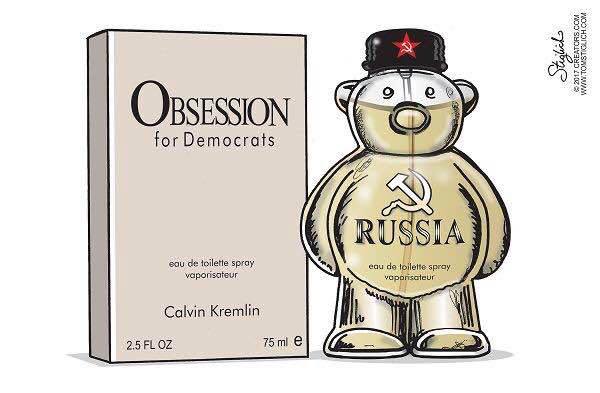|
"Fake News" And How The Washington Post Rewrote Its Story On Russian Hacking Of The Power Grid "Yet, it turns out this narrative was false and as the chronology below will show, illustrates how effectively false and misleading news can ricochet through the global news echo chamber through the pages of top tier newspapers that fail to properly verify their facts." |
|
No, Russian Agents Are Not Behind Every Piece of Fake News You See |
|
Election Hack Report FAQ: What You Need to Know On Friday we published an analysis of the FBI and DHS Grizzly Steppe report. The report was widely seen as proof that Russian intelligence operatives hacked the US 2016 election. We showed that the PHP malware in the report is old, freely available from a Ukrainian hacker group and is an administrative tool for hackers. We also performed an analysis on the IP addresses included in the report and showed that they originate from 61 countries and 389 different organizations with no clear attribution to Russia. Our report has received wide coverage. Since then I have been interviewed on international network news and by online publications to share our findings. I’d like to provide some clarity both on the FBI/DHS report itself and our findings in the form of an FAQ. |
|
"What is it about Russia that winds everyone up so much? Why all the anger, the endless barrage of alarmist rhetoric and ruthless drive to isolate a great power with a vast arsenal of nuclear weapons? From left to right, hyperventilating pundits and politicians warn that the Bear is on the prowl and that Vladimir Putin is the saboteur of American democracy. As a result, they have spread exaggerations about the Russian threat, which have fuelled hatred and sowed misunderstanding." |
|
How fake news starts. "The Democratic National Committee “rebuffed” a request from the FBI to examine its computer services after it was allegedly hacked by Russia during the 2016 election, a senior law enforcement official told CNN Thursday. “The FBI repeatedly stressed to DNC officials the necessity of obtaining direct access to servers and data, only to be rebuffed until well after the initial compromise had been mitigated,” a senior law enforcement official told CNN. “This left the FBI no choice but to rely upon a third party for information. The FBI instead relied on the assessment from a third-party security company called CrowdStrike." |
|
Washington Post posts a retractionan After claiming a Russian virus affected the electricity grid in Vermont a retraction was posted pointing out it was a regular virus, not from Russia and not connected to the network. In other words it can't physically affect anything. The Washington Post did a poor job of being journalism and had reported all sorts of awful things the Russians were to bre blamed for. |
|
The New Red Scare Reviving the art of threat inflation
------------Summary of Page 1
|
|
Clinton's Russian Uranium Deal "The deal made Rosatom one of the world’s largest uranium producers and brought Mr. Putin closer to his goal of controlling much of the global uranium supply chain. But the untold story behind that story is one that involves not just the Russian president, but also a former American president and a woman who would like to be the next one." - NYTimes |
|
US Intel Vets Dispute Russia Hacking Claims December 12, 2016 "We have gone through the various claims about hacking. For us, it is child’s play to dismiss them. The email disclosures in question are the result of a leak, not a hack. Here’s the difference between leaking and hacking: Leak: When someone physically takes data out of an organization and gives it to some other person or organization, as Edward Snowden and Chelsea Manning did. Hack: When someone in a remote location electronically penetrates operating systems, firewalls or any other cyber-protection system and then extracts data. All signs point to leaking, not hacking. If hacking were involved, the National Security Agency would know it – and know both sender and recipient because the have all the metadata for all of the calls. In short, since leaking requires physically removing data – on a thumb drive, for example – the only way such data can be copied and removed, with no electronic trace of what has left the server, is via a physical storage device." |
|
The CIA Leaked in March 2017 Wikileak's revelations about the CIA cause them soddenly have less creditability than Donald Trump with low blood sugar. Conveniently this happened at a time of peak anti-Russian hysteria from the left. Nobody else believes or cares, like climate, it's a strictly partisan issue. |
|
Clinton campaign, DNC paid for research that led to Russia dossier The Washington Post’s Adam Entous looks at the role that Hillary Clinton’s campaign and the Democratic National Committee played in funding the research that led to a dossier containing allegations about President Trump’s links to Russia. |
|
Articles from The Intercept. |

